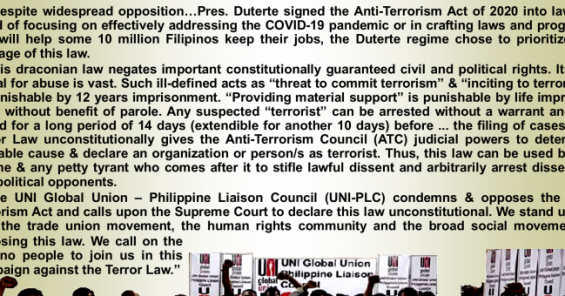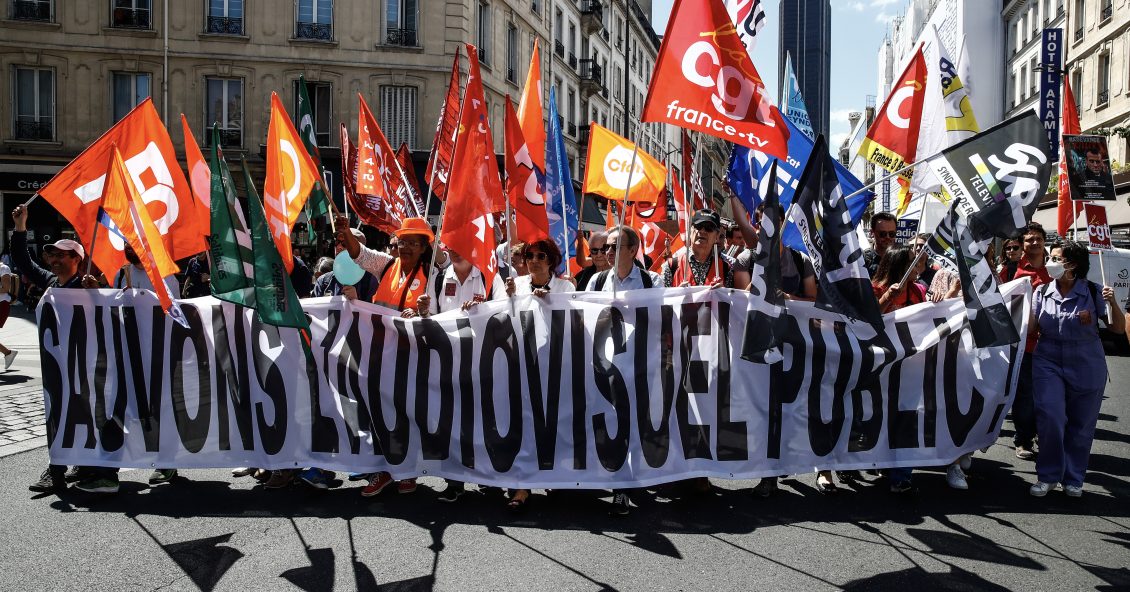The controversial Anti-Terrorism Act came into effect when President Rodrigo Duterte signed it into law on 3 July amidst the still raging Covid-19 pandemic. The Act attracted much criticism as it takes away from the needed attention of the country’s administration to develop laws and policies to deal with the livelihoods of ten million working class Filipinos affected by the pandemic.
The UNI Global Union – Philippine Liaison Council (UNI-PLC) joined on 4 July the Movement Against the Terrorism (MATA), a broad-based movement composed of trade unions, human rights groups, civil society organizations, to express its grave concerns during an online protest rally.
The key worries over the Act lies in its vast potential for abuse due to the ambiguous wordings and scope that allows for broad interpretation of what constitutes terror acts. The punishment and the processes laid out are also questionable in terms of its constitutionality. The Act would likely further muzzle lawful dissent and penalises dissenters and political opponents of the establishment.
Due to these concerns, the UNI PLC strongly condemns and opposes the signing of the Anti-Terrorism Act into law and is calling upon the Philippines Supreme Court to declare this law unconstitutional.
UNI Apro is similarly concerned over this disturbing development for its impact on the space for independent trade unions to operate and voice out workers concern during the pandemic. It joins the Global Union Federations with affiliates across the Asia and Pacific regions to raise serious concerns over the new Act.
Note: Article edited to reflect additional GUF’s joint statement.


